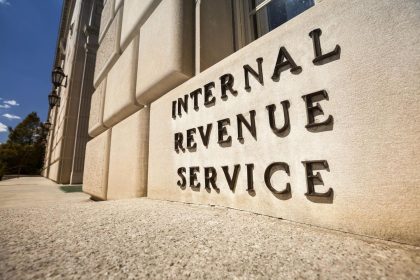Corrected, May 13, 2024: This article has been updated to clarify that Section 643(i) does not apply to grantor trusts.
The IRS witnessed a proliferation of abusive foreign trusts in the 1990s. In many of these arrangements, U.S. taxpayers successfully concealed property (and corresponding income from the property) from the government because it was held in foreign jurisdictions. Congress responded by enacting a slew of federal reporting laws and enhanced penalties for noncompliance.
Although many of these laws were enacted roughly three decades ago, Treasury and the IRS have been slow in issuing formal guidance such as regulations. Rather, tax professionals and taxpayers have been required to consult non-binding guidance (e.g., Notice 97-34, Rev. Proc. 2020-17) to determine how to properly comply with the reporting rules associated with foreign trusts and gifts. On May 7, 2024, that changed when Treasury issued proposed regulations.
The proposed regulations are more than 150 pages. They cover various statutory provisions, ranging from foreign trust and gift reporting (secs. 6039F, 6048, and 6677) to transactions with foreign grantor and non-grantor trusts (secs. 679 and 643(i)). Although the proposed regulations incorporate much of the informal guidance previously issued by the IRS, they also provide some interesting new rules related to foreign trusts and gifts. Two of those are discussed below.
Foreign Gift Anti-Avoidance Rule
Section 6039F requires U.S. persons to report the receipt of large gifts from foreign persons. For example, U.S. persons must complete Part IV of Form 3520 to report the receipt of more than $100,000 from a foreign individual. Taxpayers who miss the Form 3520 filing deadline may be subject to civil penalties of up to 25% of the amount of the gift.
In the proposed regulations, Treasury notes that taxpayers have cleverly attempted to avoid the Form 3520 filing obligation and corresponding penalty by arguing that the transaction should be characterized as a loan and not a gift. To fight against these arguments, Treasury has proposed to include an anti-avoidance rule (Prop. Reg. sec. 1.6039F-1(b)(2)) that would require gift treatment in these instances if all of the following requirements are met: (i) the IRS concludes that the amount received is in substance a gift based on the facts and circumstances; (ii) the recipient does not treat the amount received as a gift; and (iii) the recipient does not treat the amount received as taxable income.
If the anti-avoidance rule makes it into the final regulations, U.S. taxpayers who receive bona-fide debt from foreign persons may want to ensure they can substantiate the debt. For example, they may want to have a written loan agreement and note, history of principal and interest payments, and other indicia of debt to avoid inclusion in the anti-avoidance rule, particularly if the transaction is with a related party such as a family member.
Tax-Favored Foreign Retirement Accounts
Foreign pensions and retirement accounts routinely create reporting nightmares for taxpayers. In some instances, these retirement vehicles fall within the federal income tax definition of a foreign trust. If a reporting exception does not apply, the taxpayer must comply with the rigorous and demanding reporting requirements under section 6048, which may require filing annual Forms 3520 and 3520-A. Naturally, this results in additional tax preparation costs. It also increases the risk that the taxpayer may be subject to penalties in the future for missing the Form 3520 and 3520-A filing deadlines.
In 2020, the IRS issued Rev. Proc. 2020-17. The goal of the revenue procedure was to try to exempt from these reporting requirements many U.S. taxpayers who held foreign retirement plans treated as foreign trusts. However, the exemption only applied if the plan met certain requirements, including a contribution limitation—namely, contributions to the retirement plan had to be “limited by a percentage of earned income of the participant, . . . subject to an annual limit of $50,000 or less to the trust, or . . . subject to a lifetime limit of $1,000,000 or less to the trust.” Because many foreign retirement plans do not meet this contribution requirement, the revenue procedure had limited effect on most taxpayers.
The proposed regulations seek to loosen the requirements under Rev. Proc. 2020-17. Under Prop. Reg. sec. 1.6048-5(b), a taxpayer may be exempt from filing a Form 3520 and 3520-A for tax-favored foreign retirement accounts if the taxpayer satisfies, among other requirements, either a value threshold or an increased annual contribution limit (from $50,000 to $75,000). Although tax professionals would likely argue much more needs to be done, broadening the reporting exemptions for foreign retirement plans would be a welcome relief to many U.S. taxpayers.
Summary
The proposed regulations, though not yet in final form, represent a good first step to gaining clarity in an already complicated and ambiguous tax landscape regarding foreign trusts and gifts. Tax professionals and taxpayers should stay tuned to see which rules stay, which are removed, and which are modified in the final regulations.
Read the full article here

















